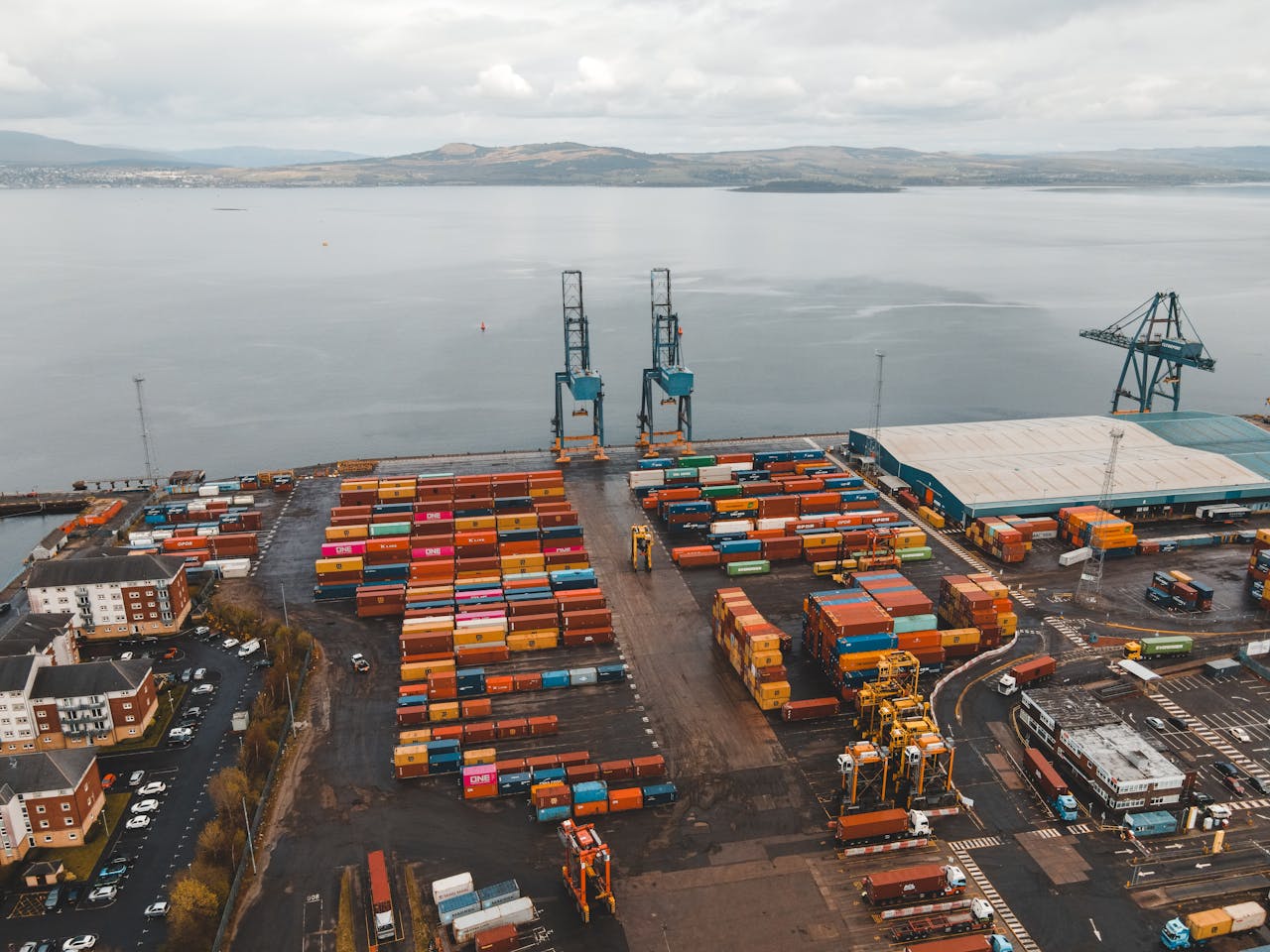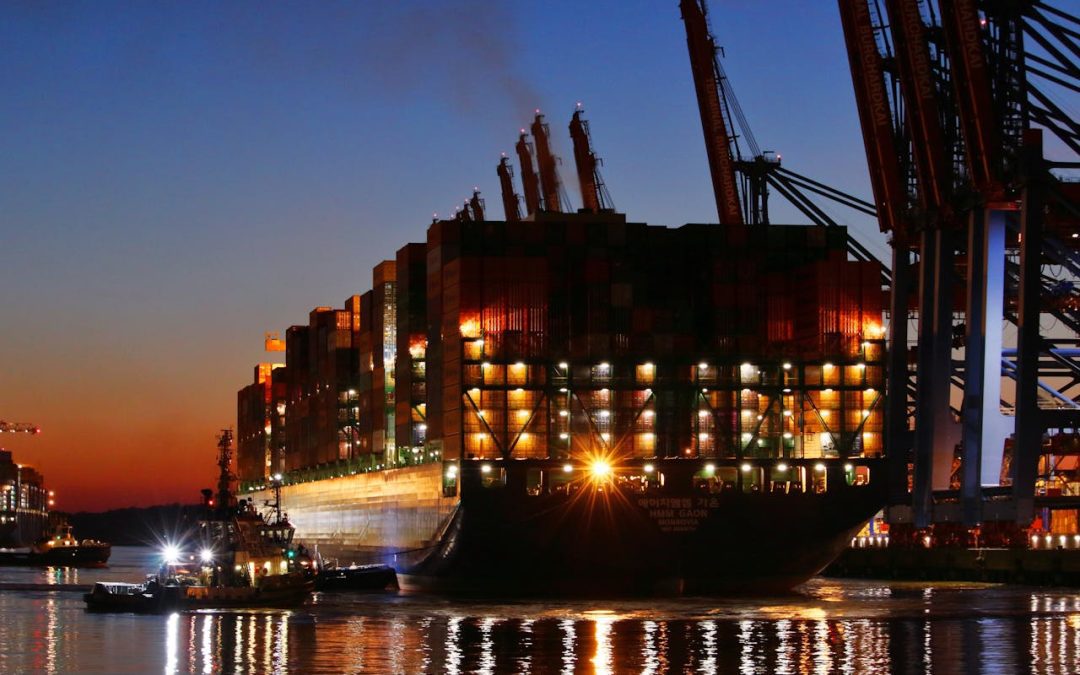অনলাইন বুকিং থেকে রিয়েল-টাইম ট্র্যাকিং পর্যন্ত মালবাহী ফরওয়ার্ডিং ডিজিটাল সিস্টেমের উপর ক্রমশ নির্ভরশীল হয়ে উঠেছে। প্রক্রিয়াগুলিকে ত্বরান্বিত করতে এবং মানবিক ত্রুটিগুলি হ্রাস করার জন্য এটি দুর্দান্ত, তবে ডিজিটাল ল্যান্ডস্কেপে লুকিয়ে থাকা একটি ভয়ঙ্কর শত্রু…
সাইবার অপরাধী।
আমরা তাদের অন্ধকার বেডরুমে পর্দার আড়ালে বসে থাকা বোকা লোকদের কথা বলছি না, এটি থেকে অনেক দূরে। সাইবার ক্রাইম পরিশীলিত এবং লক্ষ্যবস্তু হতে পারে, এবং মালবাহী ফরওয়ার্ডার এবং ক্লায়েন্টদের জন্য সাইবার আক্রমণের সম্ভাব্য বিধ্বংসী পরিণতি বেশি।
চিন্তিত বোধ করছেন? মালবাহী ফরওয়ার্ডিং-এ সাইবার নিরাপত্তা সম্পর্কে জানতে পড়ুন এবং হুমকি মোকাবেলায় আমরা কী পদক্ষেপ নিই তা দেখুন।
সাইবার হুমকি ফ্রেট ফরওয়ার্ডার সম্মুখীন
প্রথাগত মালবাহী ফরওয়ার্ডিং দ্রুত ডিজিটাল প্ল্যাটফর্ম এবং প্রক্রিয়া দ্বারা প্রতিস্থাপিত হচ্ছে, এবং এটি অনেক সুবিধা নিয়ে আসে। এখানে আমাদের ব্লগে তাদের সম্পর্কে পড়তে পারেন .
দুর্ভাগ্যবশত, প্রযুক্তির ব্যবহার একটি বড় খারাপ দিক নিয়ে আসে। ফ্রেইট ফরওয়ার্ডাররা বিভিন্ন ধরনের সাইবার হুমকির সম্মুখীন হচ্ছেন।
Ransomware
র্যানসমওয়্যার বিশ্বব্যাপী মালবাহী ফরওয়ার্ডারদের জন্য একটি উল্লেখযোগ্য হুমকি। এটি এক ধরনের দূষিত সফ্টওয়্যার যা গোপনে ব্যবহারকারীর সিস্টেমে ইনস্টল হয়ে যায়, ফাইলগুলি এনক্রিপ্ট করে বা মুক্তিপণ প্রদান না করা পর্যন্ত ব্যবহারকারীকে এটি থেকে লক করে দেয়।
ডেটা লঙ্ঘন
আমরা খবরে ডেটা লঙ্ঘন সম্পর্কে অনেক কিছু শুনি, কিন্তু মালবাহী ফরওয়ার্ডিং-এ সাইবার নিরাপত্তার জন্য শব্দটির অর্থ কী?
ডেটা লঙ্ঘন মানে গ্রাহকের তথ্য এবং আর্থিক রেকর্ড সহ গোপনীয় ডেটাতে অননুমোদিত অ্যাক্সেস এবং চুরি। সাম্প্রতিক লঙ্ঘনগুলি যা শিরোনাম করেছে তার মধ্যে রয়েছে ওয়েলশ রাগবি ইউনিয়ন, যা হাজার হাজার ভক্তদের ব্যক্তিগত তথ্য ফাঁস করেছে এবং উত্তর আয়ারল্যান্ডের পুলিশ সার্ভিস, যা 2023 সালে লঙ্ঘনের পরে সম্ভাব্য £750k এর সম্মুখীন হচ্ছে৷
মালবাহী ফরওয়ার্ডাররা ডেটা লঙ্ঘনের ক্ষেত্রে বিশাল সম্ভাব্য আইনি এবং আর্থিক দায়বদ্ধতার সম্মুখীন হয়, লঙ্ঘন পরিচালনা করার সময় অপারেশন বন্ধ করার সম্ভাবনার কথা উল্লেখ না করে।
DDoS আক্রমণ
যখন একটি পরিষেবা বা সিস্টেম ওয়েব ট্র্যাফিকের বন্যার দ্বারা লক্ষ্যবস্তু এবং ব্যাহত হয়, তখন একে DDoS আক্রমণ বলা হয়। DDoS মানে 'পরিষেবার ডিস্ট্রিবিউটেড ডিনায়েল'; একটি মালবাহী ফরোয়ার্ডারের উপর একটি DDoS আক্রমণ সম্পাদনকারী আক্রমণকারী দূরবর্তীভাবে ফরওয়ার্ডারের ওয়েবসাইটে প্রচুর পরিমাণে ডেটা প্রেরণ করে, উল্লেখযোগ্যভাবে এটিকে ধীর করে দেয় বা এটি ক্র্যাশ করে, বৈধ গ্রাহকদের কাছে এটি অব্যবহৃত করে।

ব্র্যান্ডজ্যাকিং
মালবাহী ফরওয়ার্ডিং-এ সাইবার নিরাপত্তায় প্রতিবন্ধকতার মধ্যে রয়েছে ছদ্মবেশীকরণ। মালবাহী ফরোয়ার্ডরা তাদের ডিজিটাল উপস্থিতি ছদ্মবেশী হওয়ার ঝুঁকিতে থাকে; সাইবার অপরাধীরা ফরোয়ার্ডারের ওয়েবসাইট কপি করে ফি এবং কার্গো উভয়ই চুরি করতে পারে। এটি শুধুমাত্র একটি ফরোয়ার্ডকে উচ্চ এবং শুষ্কই রাখে না, তবে এটি একটি ব্র্যান্ডের খ্যাতিকে নেতিবাচকভাবে প্রভাবিত করে।
বিল অফ লেডিং র্যানসম
মালবাহী ফরওয়ার্ডিং-এ সাইবার নিরাপত্তার এই উপাদানটি সরাসরি একজন ফরোয়ার্ডারের ক্লায়েন্টদের প্রভাবিত করে। একজন ফরোয়ার্ডার হিসাবে জাহির করে, অপরাধীরা পণ্যদ্রব্য পাঠানোর পরে বিল অফ লেডিং আটকে রেখে ব্যবসায়িক চাঁদাবাজি করে, তাদের দাবি পূরণ না হওয়া পর্যন্ত সরবরাহ চেইন বন্ধ করে।
কেন মালবাহী ফরওয়ার্ডার দুর্বল হয়
কিন্তু পুরো বিশ্ব ডিজিটাল হচ্ছে, আমরা আপনাকে বলতে শুনি। ফরোয়ার্ডরা কেন সহজ টার্গেট?
একবার দেখা যাক।
ডেটার সম্পদ
মালবাহী ফরোয়ার্ডরা বিপুল পরিমাণ সংবেদনশীল গ্রাহকের তথ্য প্রক্রিয়া করে। এটি তাদের সাইবার অপরাধীদের জন্য উপযুক্ত করে তোলে যারা পণ্যের উপর তাদের হাত পেতে চাইছে এবং এর অর্থ মালবাহী ফরওয়ার্ডিংয়ে সাইবার নিরাপত্তা অত্যন্ত গুরুত্বপূর্ণ।
সাপ্লাই চেইন সাইজ
সাপ্লাই চেইন একাধিক চলমান অংশ জড়িত থাকে। একটি সরবরাহ শৃঙ্খল জুড়ে, আক্রমণকারীদের লক্ষ্য করার জন্য বেশ কয়েকটি প্রবেশপথ রয়েছে।

পুরানো সিস্টেম
আমাদের শিল্প এখনও ডিজিটাইজিং করছে, এবং এটি একটি চলমান প্রক্রিয়া। পুরানো প্রযুক্তি ব্যবহার করে ফরোয়ার্ডরা সাইবার অপরাধমূলক কার্যকলাপের বিরুদ্ধে সম্পূর্ণরূপে সুরক্ষিত নাও হতে পারে।
আমরা সব মানুষ
বোর্ড জুড়ে, আমরা সবাই ভুল করি। সাইবার অপরাধীরা চালাক; দূষিত লিঙ্কগুলি এবং ফিশিং স্ক্যামগুলিকে বাস্তবসম্মত দেখানোর জন্য তৈরি করা হয় যাতে আমাদেরকে রিয়েল করা যায়৷ হুমকি সম্পর্কে আরও জানার মাধ্যমে আমরা আরও ভালভাবে সুরক্ষিত থাকি৷
সাইবার নিরাপত্তা জোরদার করার জন্য আমরা সক্রিয় পদক্ষেপ গ্রহণ করি
মিলেনিয়াম আমাদের প্রতিষ্ঠান জুড়ে সাইবার নিরাপত্তা জোরদার করার জন্য কঠোর পরিশ্রম করে। এখানে কিভাবে.
অ্যান্টিভাইরাস এবং অ্যান্টি-ম্যালওয়্যার সফ্টওয়্যার
আমরা সর্বোত্তম অ্যান্টিভাইরাস এবং অ্যান্টি-ম্যালওয়্যার প্রোগ্রামগুলি চালাতে পারি তা নিশ্চিত করার মাধ্যমে মালবাহী ফরওয়ার্ডিং কার্যক্রমে মিলেনিয়াম সাইবার নিরাপত্তার শীর্ষে রাখে। এটি একটি সমস্যা হওয়ার আগেই ক্ষতিকারক সফ্টওয়্যার সনাক্ত করে এবং সরিয়ে দেয়।
ইমেইল ফিল্টারিং
ইমেল ফিল্টারিং প্রযুক্তি স্প্যাম, ফিশিং প্রচেষ্টা এবং অন্যান্য হুমকির জন্য আগত এবং বহির্গামী ইমেলগুলি স্ক্যান করে।
শক্তিশালী পাসওয়ার্ড এবং মাল্টি-ফ্যাক্টর প্রমাণীকরণ (MFA)
আমাদের ব্যবসা এবং আপনার তথ্য নিরাপদ এবং সুরক্ষিত রাখতে, আমরা শুধুমাত্র জটিল পাসওয়ার্ড এবং MFA ব্যবহার করি। MFA হল একটি নিরাপত্তা ব্যবস্থা, যাতে ব্যবহারকারীদের আমাদের ওয়েবসাইট এবং সিস্টেমে সাইন ইন করার পর পরিচয়ের প্রমাণ হিসাবে একাধিক যাচাইকরণ প্রদান করতে হয়।
নিয়মিত সফ্টওয়্যার আপডেট
আমরা সর্বদা আপডেটের জন্য পরীক্ষা করি এবং অসমর্থিত হওয়ার কারণে প্রযুক্তির উপর ধারাবাহিক নজর রাখি।
প্রশিক্ষণ
জ্ঞানই শক্তি। আমাদের পুরো দল মালবাহী ফরওয়ার্ডিং-এ সাইবার নিরাপত্তা, আমরা যে ঝুঁকির বিরুদ্ধে আছি এবং আক্রমণ থেকে আমাদের সুরক্ষিত রাখার সর্বোত্তম অনুশীলন সম্পর্কে শিক্ষিত।
নিরাপদ নেটওয়ার্ক
ট্রানজিটে ডেটা সুরক্ষিত রাখতে মিলেনিয়াম ফায়ারওয়াল, অনুপ্রবেশ সনাক্তকরণ সিস্টেম এবং ডেটা এনক্রিপশন ব্যবহার করে।
ঘটনা প্রতিক্রিয়া পরিকল্পনা
যদিও আমরা সাইবার অপরাধমূলক কার্যকলাপ প্রতিরোধ করার জন্য প্রতিটি বাধা পেয়েছি, কোনো ঘটনা ঘটলে, আক্রমণের মোকাবিলা করার জন্য আমাদের কাছে একটি শক্তিশালী ঘটনা প্রতিক্রিয়া পরিকল্পনা রয়েছে।
সাইবার আক্রমণ ফরোয়ার্ডদের জন্য একটি চলমান হুমকি
সাইবার সিকিউরিটি এককালীন সমাধান নয় বরং একটি চলমান প্রক্রিয়া যার জন্য সতর্কতা এবং অভিযোজন প্রয়োজন। আপনি যে ফরোয়ার্ডারের সাথে কাজ করতে চান সেটি সাইবার নিরাপত্তাকে গুরুত্ব সহকারে নেয় তা নিশ্চিত করা আপনাকে, আপনার ব্যবসা এবং আপনার গ্রাহকদের সম্ভাব্য বিধ্বংসী পরিণতি থেকে নিরাপদ রাখবে।
একটি মালবাহী ফরওয়ার্ডার খুঁজছেন আপনি উপর নির্ভর করতে পারেন? আপনি একটি খুঁজে পেয়েছেন. আজই মিলেনিয়ামের সাথে যোগাযোগ করুন।

